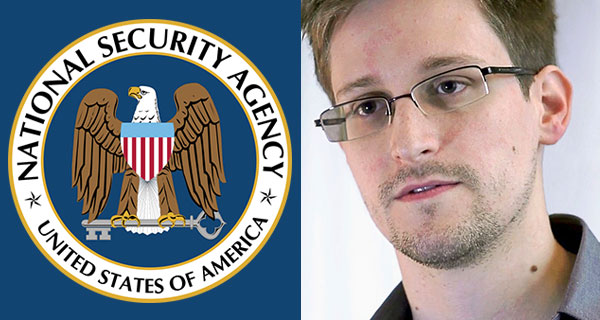Edward Snowden made a greater effort than originally believed to raise his concerns within the NSA before releasing thousands of classified documents detailing programs that allowed the agency to spy on U.S. citizens.
The truth is more complex than the NSA let on, according to Vice News, which published a report based on documents it secured through two years of Freedom of Information Act litigation.
In the aftermath of Snowden’s release of a cache of stolen NSA documents, he claimed that he had exhausted all official avenues available to him before going public.
“I had reported these clearly problematic programs to more than 10 distinct officials, none of whom took any action to address them,” he said in testimony before the European Parliament in March 2014.
However, the NSA maintained then and still maintains that it could find only one email message from Snowden that touched on the subject.
Snowden did much more than send a single email warning, Vice found.
He had an in-person interaction with one of the people who responded to his email, for example. The NSA, the administration, and Sen. Dianne Feinstein, D-Calif., all made efforts to discredit him, the FOIA documents revealed.
After releasing the documents to Vice, the NSA posted them to its website, along with a reaffirmation of its original position.
The agency found no email records of Snowden raising concerns about its programs with senior leadership, the agency insisted.
Snowden Mum on Docs
Snowden declined to comment to Vice about its story, according to ACLU attorney Ben Wizner, who noted that his client was ambivalent about issues raised in the declassified documents because he didn’t trust the NSA’s motives for releasing them.
Whether the new document cache will alter Snowden’s status remains to be seen. It certainly hasn’t changed his former employer’s attitude toward him.
“Edward Snowden was an employee of Booz Allen for less than two months, and his behavior in releasing national security information was illegal, unethical, and not reflective of our firm’s values and ethical standards,” Booz spokesperson Misty Holbert told TechNewsWorld.
The single letter claim could be a distraction from the larger issues raised by Snowden’s revelations.
The government is attempting “to try and convict — in absentia — Edward Snowden for revealing information about the NSA,” said Richard Stiennon, chief research analyst with IT-Harvest.
“One way to do that is to sully his character by making it look like he didn’t follow proper procedures,” he told TechNewsWorld.
“They’re trying to paint him as a villain and criminal,” Stiennon said. “One of the ways to do that is to demonstrate that we’re so open to internal criticism, all he had to do is come to us, and we would have listened to him. We know that’s ridiculous because the NSA isn’t prepared to change.”
Denying Facts
The NSA’s stance on the single letter reflects its position on the larger issue of surveillance, maintained Shahid Buttar, director of grassroots advocacy for the Electronic Frontier Foundation.
“Snowden has claimed from the beginning that he shared word in official channels that there were oversight problems,” he told TechNewsWorld.
“The agency denied he shared word, and now there are documents showing he did. That reflects the narrative of the underlying abuses themselves, which the agency denied and said didn’t exist,” Buttar added. “It’s part of a continuing cycle of official denial of fact.”
Snowden isn’t the only whistle-blower the government has targeted during the Obama years.
“Despite claiming to be the most transparent administration in history, the Obama administration has actually prosecuted more people under the Espionage Act — an act frequently used to criminalize whistle-blowers — than any other administration in history,” said Evan Greer, campaign director of Fight for the Future.
“There is a general culture of suppressing dissent in these institutions. Whistle-blowers are needed because there’s a lack of oversight and accountability — particularly of intelligence agencies,” he told TechNewsWorld.
Although Congress is supposed to exercise oversight of those agencies, it hasn’t done so to any significant degree.
“You have to follow the money,” Greer said. “If you look at the votes around legislation that affects our privacy and civil liberties over the last decade, the members of Congress who have consistently voted to expand mass government surveillance to undermine our Fourth Amendment rights have received disproportionately larger contributions from [firms in] the defense industry, which by and large profit from this mass surveillance system.”






















































